

11 Questions to Ask Yourself before Studying PhD
“ Studying PhD is a dream for many, indeed, but hard to get, it’s a reward, award and highest level of academic degree given in various subjects. “
I always say, ‘PhD is not for all’ even though you are talented enough to go for it! If you don’t have passion, patience, and confidence, you can’t complete it.
Enrolling into PhD isn’t to confirm your tag of “Dr”, you need to work hard and complete various milestones to achieve the honor. Until you can’t achieve all the milestones, you can’t use “Dr” means, you haven’t completed it.
During master’s, everyone wants to become a scientist and doctor; and therefore their dream is to go for PhD. Hopefully, many can achieve it but not everyone gets it.
One survey suggests that only 30% of students can complete PhD after getting admission. So it’s very important to ask yourself several questions before deciding to go for the PhD or study PhD.
There are many other options besides PhD, if you think that it’s the only destination because if you fail in any step, you can’t go further and get stuck in the clouds of problems.
And leaving PhD midway makes you depressed and hopeless. So it is better to prepare yourself before studying for a PhD. In the present article, I will give you a list of questions you should ask yourself, before deciding to go for doctoral studies.
List of questions
Why do I want to do a PhD?
How is doing a phd will help me , which phd program is best for me , am i eligible enough to study phd .
- How can I prepare to study PhD?
What problems should I have faced?
What are my strengths and limitations , am i mentally prepared for the phd studies , am i financially prepared for the phd studies , how will the outcomes of my phd topic help me , what are the other options for me if not a phd , how can i prepare to study phd , conclusion: .
First, understand the importance of a PhD. The responsibilities of prospective students are to find new and fresh knowledge through research. So one needs to do research during the entire tenure of the PhD.
Ultimately, it prepares candidates for academia as well as for research in 5 to 7 years of research tenure. If neither academics nor research is your interest! Then it is better to step back!
Teaching, learning, writing and finding new things are your interest and you love it!- I can say proceed with faith.
If your ultimate goal is to earn money! I can say still you can stay on your decision, again, you need to work hard to find something outstanding, worth patenting.
Your groundbreaking achievements can give you rewards and make you reach. But I can say, research should be your interest, essentially.
Go for PhD, confidently, If you want to be;
- Academician
- Professor
- Leader
- famous
Everything that we do must have some outcomes and that should be helpful to us, indeed and so the doctoral degree is!
The higher studies will be beneficial to us because we are investing time and money, I mean, more time and huge investment. Henceforth, rewards must be satisfactory.
A person with a PhD degree can live life comfortably with a decent amount of earnings. Even if you are fed up with ‘research like things!’ You can be a teacher, professor, lecturer or ever a dean of the institute and can live a comfortable life.
However, after doing PhD, one’s responsibilities are to constantly serve society and country.
Besides,
You can earn more money,
Can become a renowned person,
Can become a scientist
And also get fame if done well.
The question discussed above, “why do I want to do PhD?” and “how will the PhD help me?” will make your mind whether to study PhD or not! If you make your mind to go!
Next, you will have to choose the PhD program for you.
Plenty of various PhD and doctorate programs are available as per students’ convenience. As a prospective student, you need to choose one. Several well-known PhD programs are,
- Full-time PhD
- Part-time PhD
- Regular PhD
- Professional PhD
Types of PhD :
Regular PhD – When a person does do PhD regularly 10 to 5 every day. Part-time PhD – When a student completes PhD without going to school regularly. Funded PhD – When the funds of PhD managed by others is known as funded PhD. Integrated PhD – When Master’s and PhD degrees are covered in one 5 years degree. Honorary PhD – When a doctoral degree is given to a person for their groundbreaking achievements. Professional PhD – When a PhD prepares trained professionals or practitioners.
To know more about each PhD type, you can read your previous article: 10 PhD programs you can choose to study.
Besides, the structure of PhD also varies. For instance, in a professional PhD, the evaluation process focuses on what expertise a candidate has achieved, a dissertation is usually not required.
In a regular PhD, a candidate needs to write a thesis and submit it to the authorities to appear in the PhD viva. Also, he or she needs to crack the viva process, often known as a thesis defense .
Some universities seek manuscript and publication while others advise a thesis in the form of a written draft to award the degree. You can learn about the evaluation process from the university website.
If you haven’t had funding options, you can choose a part-time PhD and do a job to reduce the financial burden. Select accordingly, as per your interest and convenience.
The essential requirement to enroll in PhD is a master’s degree, however, it isn’t enough to ‘do PhD’, it’s only a ticket to get in, but should have other qualities, skills and degrees to be eligible for PhD.
For example, doing MPhil will definitely help students to do PhD, as a master’s of philosophy degree prepares candidates for PhD.
If you have some research background, previous research experience in the form of a project, dissertation or MPhil and some publications, you are more eligible to study PhD than others’.
PhD is a different thing, not a routine academic degree, one has to prepare the self for it, that served by coursework. But with previous research experience or background, one can do better in their PhD.
Ask yourself, whether you have any of this or not! And proceed accordingly. Even though you haven’t had previous experience and are willing to pursue a PhD, don’t worry, prepare for coursework, learn from other’s experiences.
Preparing yourself educationally only is not enough for doing a doctorate. As I always say, doctoral or PhD studies are a bit complicated, unlike other educational degrees.
You need to prepare educationally, financially and mentally for it. Mental and financial strength is very important for the novice students. We will discuss it somewhere in this article.
To be a PhD student or to get a degree, you as a student also think over the problems you will face during the PhD. For example, you have to take a financial burden as well as failure in experiments, both at the same time.
Problems enlisted here can be faced;
- Financial instability
- Lack of confidence
- Depression
- Partiality in system
- Guide’s bad approach or lack of attention towards you
- Family issues
These are some of the common problems, however, not all may suffer but one has to be prepared for it.
One of the important questions, again, you should ask yourself before enrolling or registering the PhD topics. Take a look at your strength, expertise, interest and limitations.
You should know what you can do and what not! You must be aware about your expertise, choose a topic based on that. Do not try to experiment in order to learn new things (hold back your wings).
Make a list, what you can’t do or you don’t like to do on a daily basis. And then try to make a research proposal for your PhD . See, you like to work only when you have interest and expertise in that topic.
So, choose accordingly. Feel free to share your limitations and strength to your PhD guide and tell them what you can’t do.
If yes, go ahead but think twice, ask yourself can you take a burden of workload, demotivations, frustrations and failure. Can you work in these conditions or in pressure?
If no. be prepared for, everyone has to face these conditions. One should have to prepare mentally for a PhD.
Financial stability is also as important as your mental status. If you aren’t financially stable or you don’t have enough sources to survive in PhD, you can’t focus on your work and become unstable mentally, consequently.
Think over your financial options; scholarship, fellowship, sponsorship, project fund, employer’s fund or part-time job.
Ask yourself what are the options for you. If none of the above, how you can cope up with it, is there any other options for you. Moreover, you also have to look after your personal expenses and accommodation for 3 to 5 years, are you financially prepared for that?
Read also: Can we get a PhD degree without a master’s?
The results, outcomes or interpretation of your PhD results will decide your career and earning potential. For instance, if your outcomes will be some outstanding patent in technology, you earn potentially some decent amount life long.
If your results are focused on some dairy product, dairy technique or probiotics, you will get a job in those sectors.
Your research outcomes have a huge impact on your career and people, organizations and companies will judge you on that basis.
Discuss with your guide regarding the possible outcomes- positive as well as negative and how it will impact yourself. Furthermore, prepare your PhD project based on what type of outcome you want. Ask yourself what you want?
A patent?
A copyright intellectual property?
A job at some place?
A knowledge useful to society?
Results only useful to your career?
If your answer is “no” for all of the above questions, or even 50% of the question, PhD is not for you, trust me. You have to find other options for yourself.
Moreover, you also need to ask yourself, ‘what else, if not a PhD?’ suppose if something miserable happens that forces you to leave PhD midway, create a back up plan based on your master’s degree achievements.
Unfortunate may happen, who knows what problems you will have to face in your PhD studies. By asking these questions to yourself you are actually preparing yourself to face them.
Your preparations for any unfortunate situations today may give you relief in that situation in future.
PhD studies are full of uncertainty. One has to face various problems some are known some are unknown. And henceforth be programmed, alert and aware of possible situations.
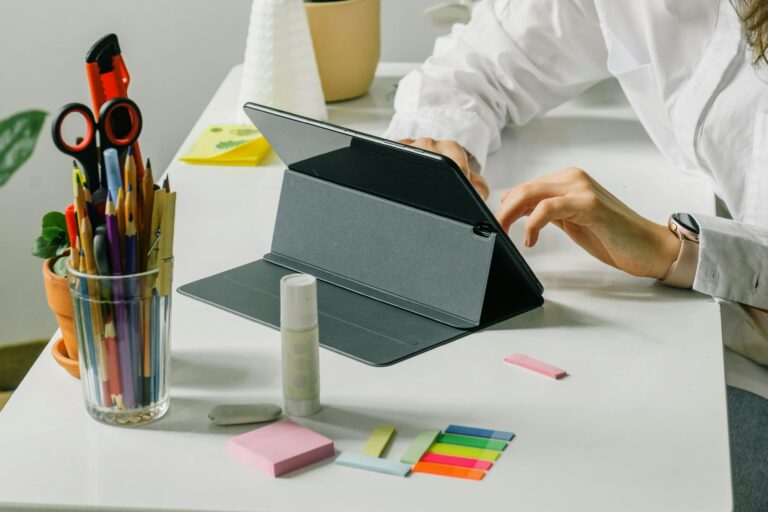
PhD Horizons: Exploring Career Paths Post-Doctorate
Obtaining a Ph.D. is an important achievement that leads to several employment options outside of academia. Nonetheless, many PhD candidates are unsure about the range of non-academic employment options accessible to them. This article will examine seven different post-doctoral job routes and offer advice on how PhD holders might traverse these avenues in search of…
Continue Reading PhD Horizons: Exploring Career Paths Post-Doctorate

8 Criteria To Select The Best PhD Coaching
“PhD Coaching services are emerging business models which help students complete their PhDs successfully from outside their University. If you are looking for one such service, check out these criteria.” Online PhD coaching is becoming popular among students, especially among those who can’t give more time to their research, however, while finding some lucrative and…
Continue Reading 8 Criteria To Select The Best PhD Coaching
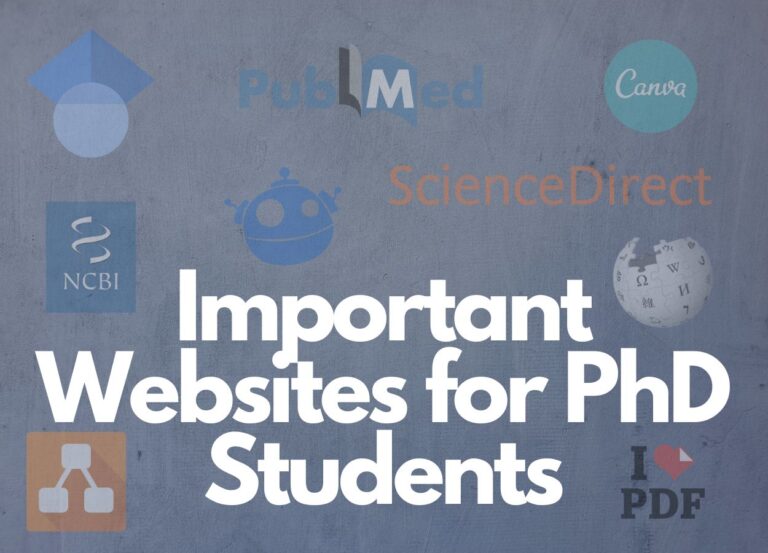
20 Amazing Websites and/or Resources For PhD Students
“The Web is full of essential as well as scrap websites and tools. The difficult task for students is to find the important one, without compromising their personal, professional and research information. I’m giving you a list of essential websites and resources for researchers and PhDs.” PhDs have comprehensive knowledge on a specific topic or…
Continue Reading 20 Amazing Websites and/or Resources For PhD Students
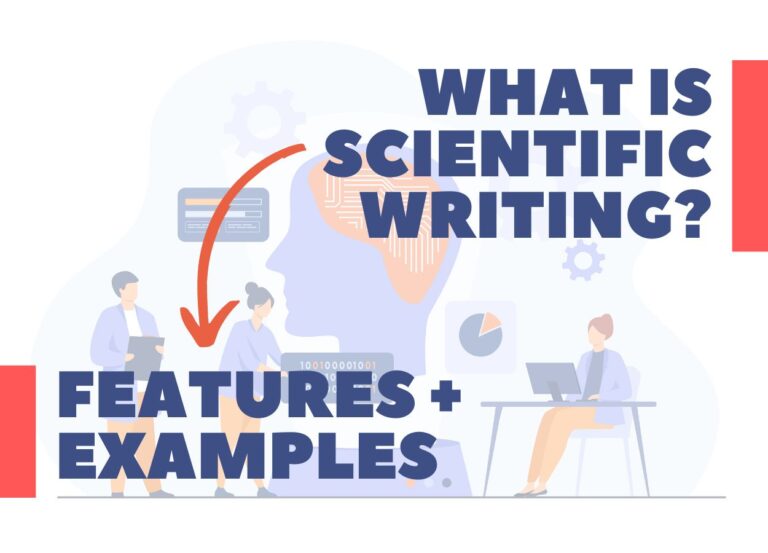
What is Scientific Writing? + Features + Examples
“Scientific writing which is an academic style of writing– is a style to write scientific literature, mainly used in scientific research. It is not more different from the academic styles of writing but there are some key features every science student should know.” The word “scientific writing” scares research scholars. Lab experiments are a key…
Continue Reading What is Scientific Writing? + Features + Examples
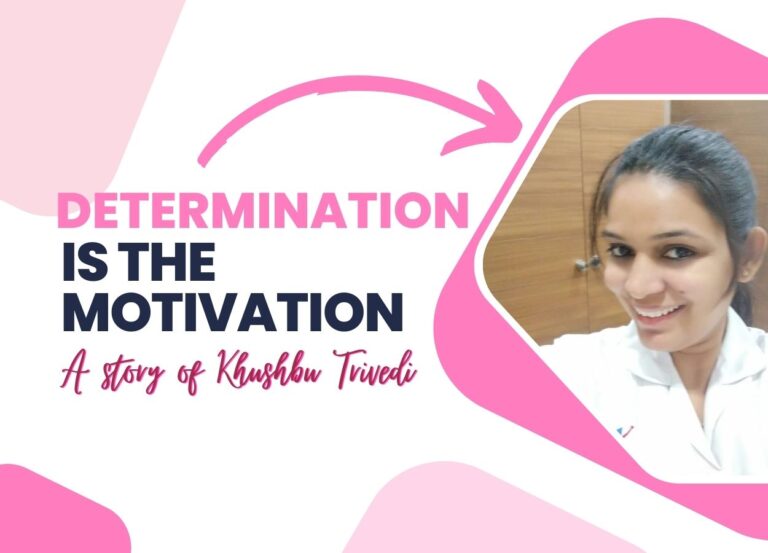
Determination is the Motivation– A PhD story of Khushbu Trivedi
“Doing research in science is my passion. But my Mom and my husband wanted me to become a doctor. That’s why I badly needed this degree.” Stories always inspire people to ‘move on’ in their life. There are many PhD stories around us that are— inspirational, challenging and tough. But no one is talking about…
Continue Reading Determination is the Motivation– A PhD story of Khushbu Trivedi

Is This New Change by UGC, May Ruin the Career of PhD students?
“Research paper publication is no longer a mandatory requirement for PhD award” stated in the UGC circular for minimum standards and procedure for the award of PhD degree in India on 15th Nov 2022. The University Grant Commission— UGC is the central Indian authority that regulates universities across India as well as the overall process…
Continue Reading Is This New Change by UGC, May Ruin the Career of PhD students?
—–End of the article—–

Dr. Tushar Chauhan is a Scientist, Blogger and Scientific-writer. He has completed PhD in Genetics. Dr. Chauhan is a PhD coach and tutor.
Share this:

- Share on Facebook
- Share on Twitter
- Share on Pinterest
- Share on Linkedin
- Share via Email
About The Author

Dr Tushar Chauhan
Related posts.

Top PhD memes of 2021 (Updated)

Why is it called a Doctor of Philosophy?
Leave a comment cancel reply.
Your email address will not be published. Required fields are marked *
Save my name, email, and website in this browser for the next time I comment.
Notify me of follow-up comments by email.
Notify me of new posts by email.
20 questions to ask about potential PhD programmes
There usually comes a time in a PhD application process when the candidate can ask the admission committee questions about the programme. If you made it to this stage, you may b e wondering: What questions should I ask about the PhD programme?
Disclaimer: This post may contain affiliate links, which means I may earn a small commission if you make a purchase using the links below at no additional cost to you. I only recommend products or services that I truly believe can benefit my audience. As always, my opinions are my own.
What makes this PhD programme unique?
What are the requirements in terms of coursework, how does this programme structure the thesis writing process, how long does it take on average for phd students to complete the degree, how much flexibility do phd students have to create their unique programmes, what facilities and equipment are available to phd students in this programme, how are phd students of this programme integrated into the wider academic community, do phd students in this programme interact with senior scientists beyond their research group, how common is it for phd students in this programme to co-author academic articles with supervisors and colleagues, what support is offered to phd students in the programme, does the programme offer any financial support, does the phd programme provide grant writing support to phd students, does the programme encourage and support phd students to work as teaching assistants, what happens if there is a problem with a phd supervisor, what are common career trajectories of phd students who complete this programme, what does the programme do to prepare phd students for the job market, does the emphasis lie on training phd students for academic careers, does the phd programme foster industry connections, collaborations with external partners and public outreach activities, does the programme organise networking events or career fairs for phd students, questions to ask about a phd programme’s setup.
A PhD interview is not just an opportunity for you to convince your interviewers that you are a good match for their programme. Your interviewers should also leave a good impression on you! This relatively open question allows them to convince you to choose their programme over any other offers that you may have. It is a good way for you to see what arguments they have to offer.
The amount of coursework can differ from PhD programme to PhD programme. Therefore, it is good to ask about specific requirements in terms of courses to follow, credits to earn, etcetera.
Similar to coursework, the thesis writing process can also differ from PhD programme to programme. Is the process divided into fixed stages (such as data collection, data analysis, and writing up)? Or is the process flexible? How is the thesis supervision organised? It is good to have answers to these types of questions in advance.
Most universities indicate the length of their PhD programmes. However, there can be a difference between the supposed length and the actual one. Potentially, a PhD programme takes 4 years on paper but most PhD students take 6 years to complete it. This information is useful to consider before committing to a programme.
You may have specific requirements for your PhD. Unique interest. And you should be aware that unexpected things can happen. For instance: care leave, illness or simply failed experiments can delay the completion of a PhD programme. Therefore, it is good to test the water and ask about the stance of the PhD programme when it comes to being flexible.
You may also like: 9 smart questions to ask a professor about graduate school
Questions to ask about a PhD programme’s environment
You want to know what the PhD programme offers to PhD students, for example in terms of office space, lab equipment, laptops, etcetera. Think about the type of facilities and equipment that you would need for your specific PhD research.
There can be a huge difference in terms of how PhD students are treated in different universities. In some, they are considered regular students who have limited contact with senior scientists besides their supervisor/s. In others, they are treated as colleagues and/or staff members who are included in department meetings, research exchanges or joint lunches. Try to get a feeling for the situation in the specific PhD programme that you are considering.
As a follow-up to the previous question, you should enquire about the contact that PhD students of a specific programme have with scholars outside of their supervisor/s or small research unit. Being exposed to different perspectives, people and insights can hugely benefit PhD students’ work. Therefore it is good to know whether PhD students in a programme tend to work in isolated silos.
Co-authoring ( when done right! ) is hugely beneficial to PhD students. It enables them to learn the art of writing scientific papers, and how to collaborate effectively. Furthermore, having publications can boost their career. In some universities, it is very common for PhD students to be included as co-authors in joint research papers. In others, it is not.

Questions to ask about a PhD programme’s support mechanisms
It is smart to start with a relatively broad question, to see what support mechanisms are offered in a PhD programme. This can be, for instance, a PhD council, a study advisor, or a mental health counsellor.
Some departments have funds, for instance, to support fieldwork. Some also offer budgets to PhD students, so that they can participate in (international) conferences. You can even think of travel reimbursements if you have a longer commute. It is good to know about possibilities for financial support in advance.
PhD students without full-time funding often rely on grants and bursaries. Additionally, gaining experience in grant writing during a PhD can be advantageous in an academic career, regardless of one’s funding situation. However, grant writing is time-consuming and often requires approval and administrative support from the university. Is this support provided?
Working as a teaching assistant during a PhD has financial benefits, and also improves PhD students’ chances of securing work as a lecturer once they graduate. Try to find out whether the PhD programme helps students to find these positions, and whether they support them (for instance by being flexible with the coursework schedule, etcetera).
A PhD supervisor plays a major role in the success of a PhD student. Unfortunately, not all PhD supervisors are good ones . Without being overly pessimistic, it can be a good idea to ask what would hypothetically happen if there is a problem with a PhD supervisor in the programme.
Questions to ask about a PhD programme’s career training and prospects
Try to get a sense of what PhD students of a programme do once they graduate. This question also helps you to assess what type of career trajectories are highlighted in the programme. Based on this information, you can draw some conclusions about the programme’s outlook on post-PhD careers.
Some universities don’t do anything to prepare PhD students for the job market. Be it the academic or the non-academic one. Others may offer special training sessions, application support and other job-market-related activities. Even though you are only exploring options for PhD programmes, it can be smart to think ahead.
Many PhD students start their degree programmes with the ambition to pursue academic careers and ultimately become professors. The reality, however, looks very different: only a very small percentage ultimately pursues an academic career. New insights about the possibilities to work in a non-academic setting and a highly competitive labour market play a role in this trend. Finding out whether a PhD programme is aware and adjusts their training to this reality can be informative.
Being exposed to job opportunities outside of academia, and conducting practice-oriented research go hand in hand with the relationships that are fostered with industry, community or any other external partners. These connections are also increasingly valued by grant and promotion committees.
A PhD programme is not solely responsible for your career after graduation. Yet, it can be advantageous if a PhD programme actively organises events or fairs that help PhD students to network, and to forge good relationship with external parties.
Master Academia
Get new content delivered directly to your inbox.
Subscribe and receive Master Academia's quarterly newsletter.
How to select a journal for publication as a PhD student
Hidden gems: 3 free apps every phd researcher should know about, related articles.

10 reasons to do a master’s degree right after graduation

Ten reasons NOT to pursue an academic career
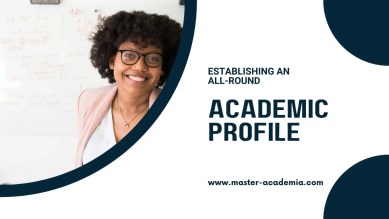
Establishing an all-round academic profile
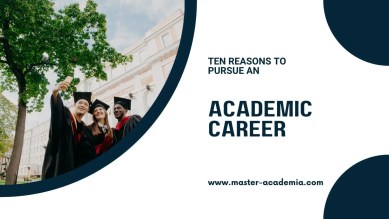
Ten reasons to pursue an academic career
Machine Learning Blog | ML@CMU | Carnegie Mellon University
Statistics:.
- [ Submissions ]
- Submissions
Categories:
- Educational
[instagram-feed num=6 cols=6 imagepadding=0 disablemobile=true showbutton=false showheader=false followtext=”Follow @Mint_Theme”]
- Our Culture
- Open and FAIR Data
- Research projects
- Publications
- Cellular Genomics
- Decoding Biodiversity
- Delivering Sustainable Wheat
- Earlham Biofoundry
- Transformative Genomics
- Scientific Groups Our groups work at the forefront of life science, technology development, and innovation.
- High-Performance Sequencing Dedicated and efficient high-throughput genomics led by experts in sequencing and bioinformatics.
- Single-cell and Spatial Analysis Platforms to support single- or multi-cell analysis, from cell isolation, to library preparation, sequencing and analysis.
- Earlham Biofoundry Providing expertise in synthetic biology approaches and access to laboratory automation
- Tools and resources Explore our software and datasets which enable the bioscience community to do better science.
- Cloud Computing Infrastructure for Data-intensive Bioscience
- Web Hosting for Sites, Tools and Web Services
- Earlham Enterprises Ltd
- Events Calendar Browse through our upcoming and past events.
- About our training High-quality, specialist training and development for the research community.
- Year in industry Supporting undergraduate students to develop skills and experience for future career development.
- Internships and opportunities Opportunities for the next generation of scientists to develop their skills and knowledge in the life sciences.
- Immersive visitors A bespoke, structured training programme, engaging with the faculty, expertise and facilities at the Earlham Institute.
- News Catch up on our latest news and browse the press archive.
- Articles Explore our science and impact around the world through engaging stories.
- Impact Stories Find out how we are contributing to the major challenges of our time.
- Impact Through Policy Advocacy Engaging across the political spectrum to exchange knowledge and inform public policy.
- Public engagement and outreach Communicating our research to inspire and engage learning.
- Communications at EI We work across digital, multimedia, creative design and public relations to communicate our research.
- Our Vision and Mission
- Inclusivity, diversity, equality and accessibility
- Scientific Advisory Board
- Our Management Team
- Operations Division
- Careers overview
- Postgraduate Studies
- Group leaders
- Fellowships
- Life at Earlham Institute
- Living in Norfolk

10 things you need to know before starting a PhD degree
So you want to do a PhD degree, huh? Here we've got everything you need to know about getting started.
So you want to do a PhD degree, huh? Are you sure about that? It’s not going to be an easy decision, so I’ve put together a list of 10 things you need to know before starting a PhD degree. Oh, and don’t panic!
I have recently graduated from the University of Manchester with a PhD in Plant Sciences after four difficult, but enjoyable, years. During those four years, I often felt slightly lost – and there was more than one occasion on which I didn’t even want to imagine writing up my thesis in fear of delving into fits of panic.
On reflection, I realise that – to quote a colleague – commencing my PhD was like “jumping in the deep end with your eyes closed.” If only I’d known to take a deep breath.
1. Are you sure you want to do a PhD degree?
Let’s be under no false impressions, completing a PhD isn’t easy. There will be times when you feel like Wile E Coyote chasing after the Roadrunner – a little bit out of your depth a lot of the time. It’s four years of your life, so make sure it is what you really want to do.
If you want to pursue a career in science, a PhD isn’t always necessary.
It is possible to make great inroads into industry without a doctoral degree. That said, a PhD can also be a very useful qualification with many transferable skills to add to your CV.
By the time you’ll have finished, you can include essentials such as time management, organisational skills, prioritising workloads, attention to detail, writing skills, presenting to an audience – and most importantly – resilience, to name but a few.
2. Choose your project, and supervisor, wisely.
This is very important.
Time after time, our experienced scientists at EI, including Erik Van-Den-Bergh (and I agree) say, “ make sure you’re extremely passionate about exactly that subject. ” When I saw the PhD opening that I eventually was offered, I remember being demonstrably ecstatic about the project before I’d even started it.
I was always interested in calcium signalling and organised a meeting with my potential supervisor immediately, which (to quote Billy Connolly) I leapt into in a mood of gay abandon.
Not only does this help you to keep engaged with your project even through the painstakingly slow times, it also greatly enhances your ability to sell yourself in an interview. If you can show passion and enthusiasm about the project and the science then you’ll be that one step ahead of other candidates – which is all the more important now that many studentships are competitive.
You have to be the best out of many, often exceptional candidates.
However, as important as it is to be passionate about your project, make sure that the person who will be supervising you is worthy.
Does your potential supervisor have a prolific track record of publishing work? What is the community of scientists like in the lab you may be working in? Are there experienced post-doctoral scientists working in the lab? Who will your advisor be? Is your supervisor an expert in the field you are interested in? Is the work you will be doing ground-breaking and novel, or is it quite niche?
There is nothing more frustrating – and I know many PhD degree students with this problem – than having a supervisor who is rarely there to talk to, shows little interest in your work, and cannot help when you are struggling in the third year of your project and some guidance would be much appreciated.
Personally, and I was very lucky to have this, I think it’s incredibly useful to have two supervisors. My PhD degree was split between the University of Manchester and the Marine Biological Association in Plymouth. Between my supervisors, I had two people with expertise in different fields, who could give me some fantastic advice from different perspectives. This also meant that I had two people to check through my thesis chapters and provide useful comments on my drafts.

Make sure you are passionate about your subject before taking it to PhD level. And by passionate I mean really passionate.
For a start, you will most likely have to write a literature review in your first three months, which if done well will form the main bulk of your thesis introduction and will save you a lot of stress and strain when it comes to writing up.
At the end of your first year, you will have to write a continuation report, which is your proof that you deserve to carry on to the end of your three or four years. This doesn’t leave much time for lab work, which means time management is incredibly important. If you think you’ll be able to swan in at 11 and leave at 3, think again.
Fundamentally, never, ever rest on your laurels! As tempting as it may be to slack-off slightly in the second year of your four year PhD, don’t.
4. Be organised.
This is a no-brainer but still, it’s worth a mention. Take an hour on a Monday morning to come up with a list of short-term and long-term goals. You’ll probably have to present your work at regular lab meetings, so it’s always worth knowing what has to be done (lest you look a pillock in front of the lab when there’s nothing to show for your last two weeks.)
It’s always good to have a timeline of what will be done when. If you have a PCR, maybe you can squeeze in another experiment, read a few papers, start writing the introduction to your thesis, or even start collecting the data you already have into figures.
The more good use you make of your time, the easier it’ll be to finish your PhD in the long run. Plus, it’s lovely to sit back and look at actual graphs, rather than worry about having enough to put into a paper. Once you’ve typed up your data, you’ll realise you’ve done far more than you had anticipated and the next step forward will be entirely more apparent.
5. Embrace change – don’t get bogged down in the details.
Felix Shaw – one of our bioinformatics researchers at EI – put it best when he said, “ it felt like I was running into brick walls all the way through [my PhD]… you’d run into a brick wall, surmount it, only to run straight into another. ”
You’ll find that, often, experiments don’t work. What might seem like a great idea could turn out to be as bad as choosing to bat first on a fresh wicket on the first day of the third Ashes test at Edgbaston. (Yeah, we don't know what that means either - Ed).
Resilience is key while completing your PhD. Be open to change and embrace the chance to experiment in different ways. You might even end up with a thesis chapter including all of your failures, which at the very least is something interesting to discuss during your viva voce .
6. Learn how to build, and use, your network.
As a PhD student, you are a complete novice in the world of science and most things in the lab will be – if not new to you – not exquisitely familiar. This matters not, if you take advantage of the people around you.
Firstly, there are lab technicians and research assistants, who have probably been using the technique you are learning for years and years. They are incredibly experienced at a number of techniques and are often very happy to help show you how things are done.
There are postdocs and other PhD students, too. Not only can they help you with day-to-day experiments, they can offer a unique perspective on how something is done and will probably have a handy back-catalogue of fancy new techniques to try.
There are also a bunch of PIs, not limited to your own, who are great to talk to. These people run labs of their own, have different ideas, and might even give you a job once you’ve completed your PhD.
Don’t limit yourself to the labs directly around you, however. There are a massive number of science conferences going on all around the world. Some of them, such as the Society of Biology Conference, take place every year at a similar time in different locations, attracting many of the leaders in their respective fields.
If you are terrified by the prospect of speaking at a full-blown science conference and having your work questioned by genuine skeptics, there are also many student-led conferences which will help you dangle your fresh toes in the murky waters of presenting your work.
One such conference, the Second Student Bioinformatics Symposium, which took place at Earlham Institute in October 2016, was a great place for candidates to share their projects with peers, who are often much more friendly than veteran researchers with 30 year careers to their name when it comes to the questions at the end of your talk.
Another great reason to attend conferences, of course, is the social-side too – make the most of this. You never know who you might meet and connect with over a few drinks once the talks are over and the party commences.
7. Keep your options open.
You should be aware that for every 200 PhD students, only 7 will get a permanent academic post , so it’s incredibly unlikely that you’ll become a Professor – and even if you make PI, it probably won’t be until your mid-forties.
You may also, despite having commenced along the academic path, decide that actually, working in a lab environment isn’t for you. Most PhD graduates, eventually, will not pursue an academic career, but move on to a wide range of other vocations.
It might be that Science Communication is more up your street. This was certainly the case for me – and I made sure that I took part in as many public engagement events as possible while completing my PhD. Most Universities have an active public engagement profile, while organisations such as STEM can provide you with ample opportunities to interact with schools and the general public.
You might also consider entrepreneurship as a route away from academia, which might still allow you to use your expert scientific knowledge. There are a variety of competitions and workshops available to those with a business mind, a strong example being Biotechnology YES.
I, for example, took part in the Thought for Food Challenge, through which I have been able to attend events around the world and meet a vast array of like-minded individuals. Many of the participants from the challenge have gone on to set up successful businesses and have even found jobs as a result of the competition.

8. Balance.
Remember that you still have a life outside of your PhD degree – and that this can be one of the greatest opportunities to make amazing friends from around the world.
A science institute is usually home to the brightest students from a variety of countries and can provide a chance to experience a delightful range of different people and cultures. Don’t just stick to the people in your lab, go to events for postgraduate students and meet people from all over campus.
There are usually academic happy hours happening on Fridays after work where you can buy cheap beer, or some lucky institutions even have their own bar. At Norwich Research Park, we not only have the Rec Centre, along with bar, swimming pool, calcetto, samba classes, archery, and a range of other activities, but there are also biweekly “Postdoc pub clubs” which are very fun to join on a Tuesday evening.
Maintain your hobbies and keep up with friends outside of your PhD and you’ll probably find it’s not that gruelling a process after all.
Plus, the people you meet and become friends with might be able to help you out – or at least be able to offer a sympathetic shoulder.

9. Practical advice.
If, after reading all of this, you’re still going to march forth and claim your doctorhood, then this section should be rather useful.
Firstly, make sure your data is backed up. It’s amazing how many people don’t do this and you’d be bonkers not to. Keep your work saved on a shared drive, so that if your computer decides to spontaneously combust upon pressing the return key, you won’t have lost all of your precious work – or have to go through every one of your lab books and type it all up again.
Secondly, don’t leave your bag in the pub with your half-written thesis in it. I did this, the bag was fine, I was in a state of terror for at least half an hour before the kind person at Weatherspoons located said bag.
Thirdly, read. Read broadly, read anything and everything that’s closely related to your project – or completely unrelated. It’s sometimes amazing where you might find a stroke of inspiration, a new technique you hadn’t thought of … or even in idea of where you might like to go next.
Finally, ask questions – all of the time. No matter how stupid it might sound in your head, everyone’s probably been asked it before, and if you don’t ask, you don’t get.
You’ll probably look far less stupid if you just ask the person standing next to you how the gradient PCR function works on your thermal cycler rather than standing there randomly prodding buttons and looking flustered, anyway.
10. Savour the positives.
At the end of all of this, it has to be said that doing a PhD is absolutely brilliant. There’s no other time in your life that you’ll be this free to pursue your very own project and work almost completely independently. By the time you come to the end of your PhD, you will be the leading expert in the world on something. A real expert! Until the next PhD student comes along …
Related reading.

A PhD, is it worth it? Just ask our students

The realities of doing a PhD

My advice for PhD students? See what bites
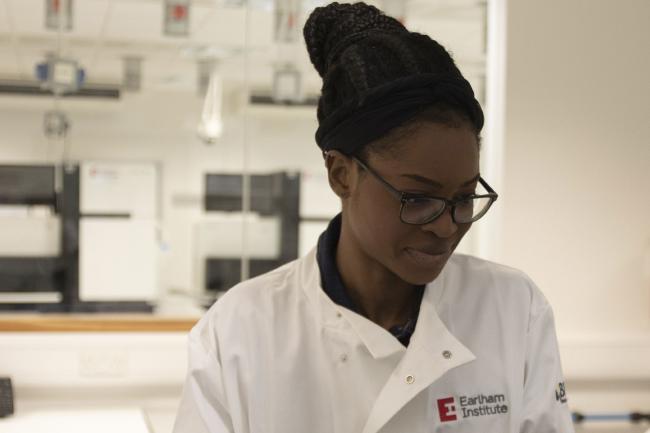
COVID and my PhD: to lockdown and back

How does a PhD work and how to find the right one

Building the confidence to take on a PhD

PhD life, 10 things we learned in our first six months
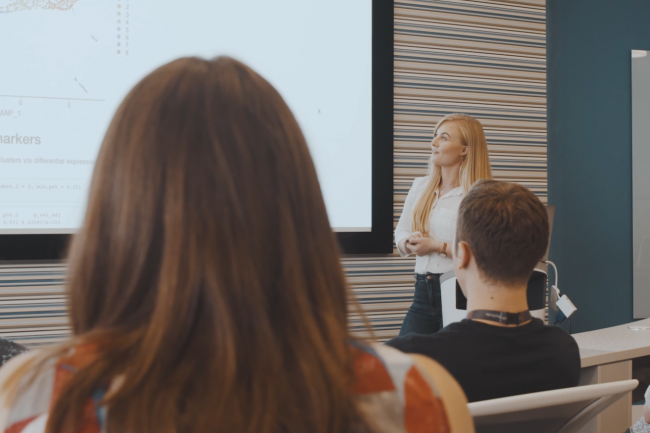
What’s the third year of a PhD like? Tips for navigating your PhD

PhD by experience
- Scientific Groups
- High-Performance Sequencing
- Single-cell and Spatial Analysis
- Tools and resources
- Events Calendar
- About our training
- Year in industry
- Internships and opportunities
- Immersive visitors
- Impact Stories
- Impact Through Policy Advocacy
- Public engagement and outreach
- Communications at EI

Community Blog
Keep up-to-date on postgraduate related issues with our quick reads written by students, postdocs, professors and industry leaders.
Questions to Ask During Your PhD Interview

- By Zebastian D.
- August 22, 2020

As someone applying for PhD positions, you’ll no doubt be thinking of and preparing for the interview with your potential supervisor(s). You’re absolutely right to be doing this and planning your answers to some of the PhD interview questions that they’ll probably ask you; make sure you’ve read our guide on this to help you prepare.
Remember though that the PhD student-supervisor relationship works both ways; as much as the potential supervisor is interviewing you for a PhD position within their lab, you should also have the mindset that you’re also interviewing the professor for the role of supervisor, and be ready to ask questions! Ultimately the key thing you want to know after your PhD interview is you are both a good fit for each other.
With that in mind, I’ve prepared a common list of questions that you should consider asking to help you decide if the supervisor and the research lab is the right fit for you. You don’t need to ask all these questions but instead use this list as a guide for picking what feels most important to you.
I should also note that some of the answers to these questions can usually be found through a quick Google search of the potential supervisor or looking at their university profile. So do think about which questions in particular you want to bring up in person at the PhD interview.
Now on to the questions….
How many PhD students have you supervised previously, and did they all gain their PhDs?
You’re asking this to firstly work out how experienced the professor is at supervising students, based purely on the numbers previously supervised. The reason to ask the second question of how many students gained PhDs is to get an idea of the supervisor’s track record of successful supervision. The lower the percentage of students that went onto complete their PhD under his or her supervision (and not leave the program early ), the more alarm bells that should be ringing for you. This of course shouldn’t be your only data point in the decision-making process, and you should try and find out more about why those that left their PhD program before completion, did so. Equally it’s also a possibility that some students have been successful in their PhD research in spite of a supervisor’s lack of support. A good way to get a truer sense of this is by speaking to the supervisor’s current and past students.
Whilst a supervisor’s successful track record can be reassuring, don’t be put off if they haven’t supervised many (or even any) students before, particularly if they’re still fairly new in the job. There are many other ways in which you can get a sense of the supervisor-student fit.

How many years does a PhD project usually take in your lab?
If you’re in the UK, a full time PhD should normally take you 3-4 years to complete , as reflected by most funding grants for PhD research being for this time frame. You want to know and have some reassurance that most students in this lab do finish within this time frame. Asking this question will also help you better understand the supervisor’s attitude towards completion time frames; is this someone that would have no issue with a student that’s been working on their PhD for 6 years or are they driven to help students complete ‘on time’.
What are the key milestones for progression that you expect from students?
This is a good follow on from the previous question. Some supervisors can be very ‘hands off’ and set no expectations on their students about deliverables and if this is the type of student-supervisor relationship you’re after (which some are), then perfect!
However, whilst a PhD project is an independent body of work, that doesn’t mean you have to do it in isolation. Having a supervisor that also acts as a mentor is important; a key aspect of this is to help keep you on track to complete your project ‘in time’, which is most effectively done using regular milestones.
The actual milestones will vary between supervisors but what you’re looking for in their response is some indication that they’ve actually thought about them. Examples of milestones may be the completion of the literature review within the first 6 weeks of starting, first experimental data captured by month 3 and first paper published by the time you end year 1.

How many other students do you supervise?
You ideally don’t want your supervisor to have too many (>5) other PhD students under his or her supervision at any one time, simply because of the dilution of their time that will naturally occur. Being part of an active research lab is a big advantage however, so you don’t necessarily want to be the only student under their supervision either. Remember that the professor may also be responsible for several Master’s and undergraduate students too so you just need to know what to realistically expect from him in terms of available time to meet with you regularly.
How often do you meet with your PhD students?
You don’t want a supervisor that’s too prescriptive in how you run your project, but you do want someone who you know you can rely on to meet with regularly. Some professors set weekly one-on-one or group research meetings that occur at the same time, day and venue; you know exactly what you’re getting here. Others tend to meet less frequently but still at regular intervals. A good balance would be to have catch up meetings every 2 weeks but it’s important to know upfront what the expectations are from both sides about how often to meet.
Finding a PhD has never been this easy – search for a PhD by keyword, location or academic area of interest.
How flexible is the direction of the PhD project?
At the PhD level of higher education, the supervisor is there to provide mentorship and guidance to help you avoid going in a completely wrong direction with your research. You should however expect to have the freedom to take your project in any direction you want to (within reason). This should be the case even if it means deviating from the original research questions that were proposed at the start; you and your supervisor should be in agreement before you start about how much flexibility there can be. Remember too that sometimes the project may have to stay closely aligned to the original plan if it’s required by the industry funder, so this decision may be out of the supervisor’s hands to some extent.
What funding is available for this project?
You should know by the time you come to interview if the project is to be self-funded or if there is specific funding associated with it. It may feel like an awkward question to ask but you need to be very clear on how much of a living stipend you should expect and if there is any additional funding for things such as conference travel, paying for journal publication fees or other bench fees; you don’t want any unpleasant surprises about finances when you’ve already started the PhD.

Do you expect there to be any changes in funding during the course of the project?
Specifically, you want to find out if there’s any risk that the funding associated with the project could be removed. Most often, funding bodies don’t transfer the entire monetary amount of the agreed funding up front in one lumpsum (which can be in excess of £75,000 for a 3-year studentship). Instead, payments are made in instalments and may be done so on the basis that certain milestones are met. For industry funded projects, for example, there may be a service work element (such as specialist analysis using university-based equipment) associated with the funding which will need to be delivered on time for the university to continue to receive money. In reality a complete loss of funding is unlikely to happen, but you should find out if this is at all a possibility of happening.
What is the source of the funding?
It’s important for you to understand how your project will be funded. As discussed in the previous question, the specific funder may place certain requirements on the university that need to be fulfilled to receive the funds. Don’t let this put you off applying or even impact your decision to take on the specific project, but it’s an important factor to be aware of.
Are there any opportunities to earn additional money as a PhD student?
Even if you will receive a stipend during the course of your research project, it comparatively won’t be a lot of money to live on. If you want it, the opportunity to earn extra money can make a big difference in managing your finances. This may in the form of one day/week working as a research technician or paid work preparing and delivering lectures to undergraduate students. It’s useful to know if these opportunities will exist to help you manage your expectations about your finances. Make sure you don’t let yourself feel obligated to take on this additional work however, even if it is paid; the priority will be ensuring your research progresses on schedule.

Will I have the opportunity and be expected to publish papers?

In the UK there is no requirement for you to have published any journal papers before you are awarded a PhD. Doing so however can go some way towards making your final viva that much easier, and also giving you a ‘head-start’ on your publication track record if you continue on into academia after your PhD.
You should get a sense of if your potential supervisor sees an opportunity for you to publish your research, if this is something that you want to do. Equally you should be aware of the supervisor’s expectations about publishing to avoid any potential conflict between your supervisor wanting you to publish work during your PhD and you wanting to wait until you’re in the post-doc stage before writing papers.
How many papers have previous PhD students published with you?
Knowing the answer to this should give you a good idea about the expectations and opportunities of publishing papers during your PhD. It’s certainly a positive sign to know that previous students have successfully published their research and is often a sign of a good supervisory system being in place.
How often does your research group present at academic conferences?
Having the opportunity to present your research at an academic conference is a key experience to have obtained during your time as a PhD student. Some supervisors actively encourage this and ensure that all funding applications include allocations for paying for conference related fees. Others are less convinced about the value of students going to conferences, particularly due to the additional expense of doing so, and may therefore not be as supportive of conference participation.
It’s useful to know what the norm is within the supervisor’s research group so that there are no surprises further down the line.

Is there funding support available for attending conferences?
Again, to be clear on expectations of funding and support for conference attendance, you should find out if there are funds specifically allocated for this purpose. If there aren’t, does the supervisor actively provide support to their students in applying for additional funding for this?
Are there courses and training sessions available for PhD students?
Find out if there are extra resources available to you should you want to use them. For example, do the supervisors students go on paper writing courses, or workshops on how to perform literature reviews? There are lots of new things that you’ll be doing during your PhD, especially at the beginning so it’s good to know that there’s external help available if and when you need it.
What are your past PhD graduates doing now?
This is an interesting one to find out from the supervisor. Are most of their graduates continuing their career development within academia or have many moved into industry work or even to a field completely different to their area of research? Ideally, you’d want this to align with your own career options. If most PhD holders have gone into industry whereas you want to pursue an academic career, you should try and find out why they ended up leaving academia. For example, did these graduates initially have aspirations of becoming professors themselves but were not able to do so or does your particular field normally open up more opportunities within industry?
What kind of support do you or the university provide for helping with jobs after?
In particular, what role does the supervisor play in helping their recent PhD graduates find their next job role? Do they have any connections within industry that they’d be able to help you network with? Or have any of their past PhD students stayed on in the lab as post-docs and are there resources in place for you to potentially do the same?
Will there be opportunities to teach undergraduate students?
The opportunity to give lectures to undergraduate students or lead tutorials with them can be a good way to earn some extra money during your PhD (note though that not all universities/departments formally pay PhD students to do this). Getting teaching experience is also important if you’re planning on continuing on down an academic career path at a university so it’s useful if you can gain some of this during your PhD.
Do you as a lab do any team activities together?
This will help you get a sense of the environment you’ll be working in for at least the next three years. Is this a lab with several PhD students and post-docs that make up an active ‘research family’? Does the team ever go out for lunch together or day trips away together to unwind? This can be a great way to build a sense of comradery in a research job that can often feel like you’re working alone in. Some supervisors actively encourage and get involved in nurturing a team environment whilst others are more hands-off, leaving the students to do their own thing.

What is the work environment like? Do students work in a shared office space?
Be clear on what your daily workspace will be like at the lab and university. Do all PhD students sit together in an open space or are there smaller office spaces for one or two students to work in? Some people prefer the buzz of an open space whilst others like the quiet of lone working. Either way, you should know what your work environment will look like for the next three years and plan accordingly (e.g. buy some noise cancelling headphones if you need some quite time in the open plan office).
I’ve given you a number of different questions to think about and ask your potential supervisor at your PhD interview. Not all of them may be relevant, or even appropriate to ask, so do think carefully about which ones you do want to bring up at the interview and which answers you could find out independently by either speaking to other students or looking online. Your research project and your experiences at the university will be so much more enjoyable if you can make sure you and your supervisor are a good fit for each other. The best way to do this is to ask questions!

The purpose of research is to enhance society by advancing knowledge through developing scientific theories, concepts and ideas – find out more on what this involves.

An academic transcript gives a breakdown of each module you studied for your degree and the mark that you were awarded.

Find out the differences between a Literature Review and an Annotated Bibliography, whey they should be used and how to write them.
Join thousands of other students and stay up to date with the latest PhD programmes, funding opportunities and advice.

Browse PhDs Now

Need to write a list of abbreviations for a thesis or dissertation? Read our post to find out where they go, what to include and how to format them.

In this post you’ll learn what the significance of the study means, why it’s important, where and how to write one in your paper or thesis with an example.

Dr Manning gained his PhD in Chemical Engineering from the University of Sheffield in 2019. He is now a postdoc researcher studying molecular simulations on nanomaterials at the University of Bath.

Dr Norman gained his PhD in Biochemistry and Molecular Biology from the University of East Anglia in 2018. He is now the Public Engagement Officer at the Babraham Institute.
Join Thousands of Students
The Best Questions to Ask During a PhD Interview
A PhD interview is not only a chance for the department to determine if you’re a good fit for their program, it’s also an opportunity for you to decide if their program is right for you. Coming to the interview prepared with some questions shows the selection committee you’re serious about their program. Stuck on what to ask? Give these questions a go!
1. Are there opportunities for summer funding or travel grants?
Not all programs pay students during the summer months. If this is the case, you should ask if the program provides financial support for students to do research-related activities in the summer like take language classes or do fieldwork. Are there grants available from the department or university for research-related travel? In a similar vein, does the department or graduate school provide travel grants to reimburse PhD students for conference expenses?
2. What are recent alumni doing now?
Getting a PhD is a big investment of time and money so potential students want reassurance that it will pay off in the future. Before you commit to a program, find out where its recent alumni are now working. Do most alumni go on to positions in academia or are most of them working in industry or alt-ac?
3. What sort of special resources does the university have for research in this field?
Some universities have resources above and beyond the norm, such as their own collection of papyri or a world-renowned affiliated hospital, which graduate students can access for their research. This can give one program an edge over another.
4. How long does it take on average for students to earn their degree?
The length of a PhD depends on which country you are studying in, however if one program has a longer-than-average time to degree it’s worth finding out why. Does the program require more coursework or have more exams than other similar programs? It’s also work asking what percentage of students don’t complete the program as a high percentage could be a red flag.
5. Will I have the opportunity to teach during my PhD?
If you want to be a professor, teaching will be an essential part of your job. It is extremely beneficial to gain teaching experience during your PhD and many North American PhD programs actually require at least one year of teaching.
6. Will I have the opportunity to publish during my PhD?
Publishing is an important part of academic life, but the publishing expectations of graduate students will depend on the field. If you are interviewing in STEM and social sciences, it is more relevant to ask how many first author papers most students publish by the time they graduate. In the humanities, where graduate publications are rarer, the better question will be if most students publish while they are in the program. In both cases, you should also ask how the faculty helps students learn to navigate publishing process.
7. What is the funding level of this PhD position?
If the job posting or department website doesn’t go into detail about PhD funding, you can take this opportunity to clarify the funding level and total cost of the program. Depending on your circumstances, you might also want to ask whether the department offers any paid assistantship positions or supports external fellowship/grant applications.
8. What makes this program unique?
The core elements of all PhD programs are the same, so try to ask a question that gets at the differences. What does this program do to differentiate itself from the competition? It can be interesting to hear how multiple faculty members in the same department answer this question.
9. Are there any planned absences in the department in the coming years?
Do any key faculty members (including your supervisor) have sabbaticals planned while you would be doing your PhD?
10. How does the dissertation process work in this program?
It’s helpful to ask questions such as can students choose their own committee members, does the university offer finishing fellowships, and how long on average does it take students in this program to complete their dissertations?
Discover related jobs
Discover similar employers
Accelerate your academic career
Moving to Finland to Research or Study
Who wouldn’t want to study or work in the happiest country in the world?...
9 Strategies to Overcome Writer’s Block
Here are some strategies to help you get the words flowing again.
Studying in the US with a J-1 Visa
Are you going to study in the US on a J-1 visa? Here are our tips for pr...
So You’re Defending Your Dissertation Tomorrow
One of the best things you can do today to prepare for your defence is t...
How to Write a PhD Elevator Pitch
How many times have you been asked, “What do you research?” only to draw...
Tips for Moving to the UK to Research or Study
The UK is a great place to study or research. Here is some practical adv...
Jobs by field
- Electrical Engineering 173
- Machine Learning 151
- Programming Languages 146
- Artificial Intelligence 138
- Molecular Biology 131
- Mechanical Engineering 127
- Cell Biology 122
- Electronics 111
- Materials Engineering 107
- Materials Chemistry 101
Jobs by type
- Postdoc 345
- Assistant / Associate Professor 137
- Researcher 125
- Professor 104
- Research assistant 101
- Engineer 82
- Lecturer / Senior Lecturer 68
- Management / Leadership 44
- Tenure Track 39
Jobs by country
- Belgium 311
- Netherlands 157
- Switzerland 120
- Morocco 117
- Luxembourg 62
- United Kingdom 48
Jobs by employer
- KU Leuven 120
- Mohammed VI Polytechnic Unive... 117
- Ghent University 73
- ETH Zürich 66
- KTH Royal Institute of Techno... 63
- University of Luxembourg 61
- University of Twente 49
- Eindhoven University of Techn... 44
- Karolinska Institutet 34
This website uses cookies
Questions to Ask A Graduate Program
Going for a campus visit or preparing for an admissions interview with a graduate program? Bookmark this page (or download it as a PDF ) to make sure you ask the right questions that will help you decide if the program is right for you.
Graduate Student Support
- Is there a diverse group of students, faculty, and administrators?
- Is there support for the needs of students from all backgrounds?
- Are there regular followup meetings with graduate students?
- Are there symposia on issues pertaining to graduate students?
- Are there graduate education workshops for undergraduates?
- What kind of social events does the graduate school or university sponsor each year?
- How is the access to faculty and graduate school administrative staff?
- Are there comprehensive wellbeing services with a professional staff equipped to serve a diverse student population?
- How robust is the communication between the graduate school and students (e.g., newsletters, social media)?
- Do the program, the graduate school, and the university focus on mentoring for student success?
- How much professional development programming is there for graduate students?
- Are there active student groups that appeal to me?
- What kind of resources and support are there for students with children?
Financial Support for Graduate Students
- Is the award merit-based or need-based?
- What are the standard eligibility requirements (e.g., citizenship, residency, field of study, career goals)?
- What types of awards are available? (e.g., teaching assistantships, research assistantships, fellowships)
- What is the stipend amount? Does the award cover tuition and fees?
- What is the duration of the award? Is the stipend guaranteed over the life of the award?
- Can the award be held concurrently with another award? Can it be used as a supplemental award?
- What are the academic requirements? (e.g., student must maintain good academic standing, must make satisfactory progress toward the degree, etc.)
- What are the teaching and research requirements? How many hours per week are expected?
- What are the penalties (if any) if you fail to complete the degree?
- What are the payback provisions? Does the award require anything of you upon completion of the degree?
- How do you apply for the award and how are the recipients chosen? Competition (nationwide, statewide, university-wide, or departmental) or nomination by the department at the time of admission?
- Is the award available to both master’s and Ph.D. students?
- What kind of dissertation support funding does the university provide?
- What kinds of travel grants does the university provide for conference participation and research?
- Does the university provide funding support for emergencies (e.g., short-term loans, hardship assistance grants)?
For External Awards from Outside the University
- Is the award portable (may be used at any institution to which you are admitted) or institutional (may only be used at the awarding institution)?
- Do you have to be admitted to a school to be eligible for award consideration, or can you apply for the award before seeking admission to graduate school?
Academic Support for Graduate Students
- What kind of formal and informal support networks exist in the department, the graduate school, and the university?
- Does the campus and departmental culture encourage mentoring?
- What research opportunities are there for graduate students?
- What opportunities exist for scholarly discussions among students and faculty in a multidisciplinary setting?
- Do curricula address ethnic, racial, gender, and cultural issues?
- Are there robust English language resources for international students?
- Utility Menu
GA4 Tracking Code - DO NOT REMOVE
Site name and logo, harvard divinity school.
- Prospective Students
- Give to HDS
Questions to Ask When Considering a PhD
A guide to finding a "good fit" in a PhD program. Provides questions to ask yourself, questions to ask about specific programs, and questions to ask faculty members with whom you wish to work.

- Schools & departments

Six Things I wish I knew before starting a PhD
Our PhD students share six things they wish they’d known before they started their PhD, from taking advantage of every opportunity to knowing when to take a break.
In this blog post, we have put together six bits of advice that will help you make the most out of your experience, whether you are considering applying for a PhD, are about to start one or recently began your journey.
1. You won’t get these opportunities again… so put yourself out there
Make us e of all the resources that the university offers you . Whether that be going to a conference or participating in the social events that have been organised within your building - take it, because you won't get that opportunity again.
“ Your PhD isn't just about doing experiments, getting results and being in the lab. It's also about building on your own skills, personal development and opening up doorways for your future. So whenever you see an event or a challenge or a talk, something that looks interesting - make the most of it, grab onto it and it will help you develop in so many ways. ”
Phoebe, PhD Tissue Repair
2. You will wish you had taken better notes

A lways write your protocols as you go along, gather your results up nicely, make sure you're on top of it from the beginning and you'll make life a lot easier for yourself when it comes to writing up !
“Write down EVERYTHING. This refers to your daily notes such as lab book notes. At the time you’re going to think such minor details are not necessary or you will remember these things anyway, but when the perfect antibody you are using stops working all of a sudden, you’re going to need all the lot numbers. Writing down exactly what things didn’t work is often more important than what did as this can be very helpful in troubleshooting.”
Priya, PhD Edinburgh Cancer Research Centre
3. Really get to know your supervisor
Try to have a good open relationship with your supervisor, because they are w ho can really help you when times are tough, and they'll help you make the most of your PhD.
“ Build a strong relationship with them and tell them who you are. Make sure you get to know them well. Because your supervisors will not only advise you during your PhD time at the university but they will also guide you for the future - for your next step, in your jobs. So make sure you use those resources well. ”
4. You don’t need to be working 24/7

“You need to have other interests, hobbies and pursuits other than your PhD project. If a table has only one leg to stand on, it’s easy to get all wobbly once that leg becomes damaged.”
Theoklitos Amvrosiadis , PhD Precision Medicine
It is common for PhD students to feel guilty for not being sat at the desk the whole day but taking breaks is crucial to stay productive and motivated. Although it is important to work hard, it is just as important to go out and enjoy your time with others. Make sure you don’t isolate yourself and keep a strong support network of people around you that will keep you going through the adversities you will find along the way.
“ Because as international students, when we don't have anybody to go back home to it can be so easy to keep working for long hours in your office or in the library for instance. So make sure you have decent work hours in the day. Make sure you take breaks, make sure you go out and enjoy the beautiful city. So yes work hard within the lab but also try and get out of the lab. Make sure you get that social interaction with your friends . ”
Genevie, PhD Population Health Sciences
5. Sometimes things won’t go to plan… Learn to accept failure
"At the beginning of my second year, I experienced the worst imposter syndrome I had ever felt. I was tasked with setting up a pretty complex expe r iment and didn’t really know where to start. After many failed attempts I started panicking. “Maybe I just can’t do it” I thought as I pictured myself being kicked off my program.
A few weeks later, however, it was done. I learned a lot from that experience, mostly about 2-photon calcium imaging, but also about myself. I was the right person for the job not because of my expertise in imaging (which was non-existent!) but because I can be resourceful and creative.
But in reality, no matter how confident and skilled I am, sometimes experiments fail. Be it a mistake, an accident or a simple stroke of bad luck, it happens. And the only way to overcome a fear of failure is through exposure therapy. After a couple of rather spectacular failures, I have realized that there’s always a valuable lesson to learn from them. I won’t by any means say that I enjoy failing, but I can definitely say that for me, it is no longer the stuff of nightmares."
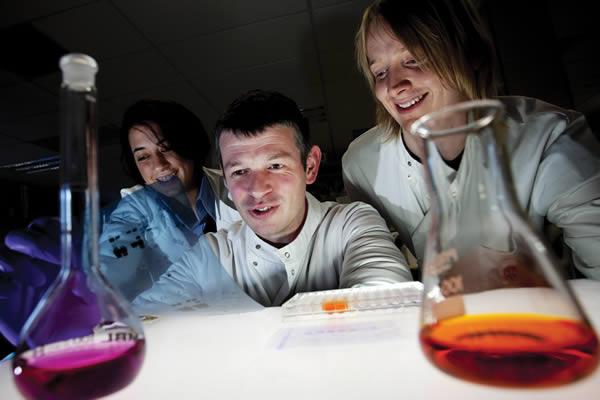
Michelle, PhD Integrative Physiology
“It is easy for us – PhD students – to become attached to the outcome of our latest experiment, the submission of a manuscript or a funding proposal, or our academic career in general. We often forget that the outcome is something we cannot directly control.
There has to be a shift in focus from the goal (the paper, the grant), which relies on many factors outside of our influence, to the process (conducting experiments properly, reading and understanding the literature…) which is the only factors we can actually control.”
6. You will get there!
“Realise that no matter what happens, you will be ok. Didn’t get into your desired PhD programme? There are countless others, you will be accepted somewhere (speaking from personal experience). Did you fail your PhD? Life certainly does not end outside of academia and your personal worth is not tied to two letters before your name.”
All PhD students will experience many obstacles and crises in their journey, and this is okay. Stay motivated by accepting that whatever happens, it won’t be the end of the world. Struggling is normal and expected and y ou will finish your degree !
"When everything seems to go downhill, don’t lose hope. I just started to work on my project and it gets desperate at times. If you are feeling overwhelmed like I was (am), don’t let it out on your project, you’ll get there. You’ll fix it. You’ll get your results. You’ll have a thesis. Just give it time! And in the meantime, embrace the opportunity that you have in your hands. How many people could say that they were brave enough to do the same thing as you’re doing?"
Madalena, PhD Evolutionary Biology
Related Links
How To Get A PhD - Ten Tips for Success
Top 10 Study Tips for PhD and Masters Students
Stress Awareness - Top Tips from our students
PhD Studentships
15 Questions Every Student Should Ask Before Doing PhD

If you haven’t done any research as part of your college or work, then you will find 15 questions in this article. Ask yourself and decide, if you have what it takes to dedicate 5 years of your life for PhD research degree. This is Part 5 of 5 in the PhD Experience.
There is no recipe for good research. Some students expect or hope to be provided with step-by-step instructions or guidelines on how to find or tackle problems. That’s not how it works. Here are a few indications of what is involved.
Learning by thinking
The first rule of research is to think, think and think again. Never hesitate to throw your mind at anything. That should be the first thing you try. Before looking up a book or paper, before asking anyone, think. For example, suppose you are reading a paper and there is a lemma, with the proof referred to another paper.
Should you go get the other paper to look it up? No. First, try to prove the lemma yourself. If you don’t succeed after a reasonable time, go look it up. But if you solve it yourself, you will have understood it better. What you solve by thinking is your baby from then on; what you look up you will forget and have to look up again and again.
Never be lazy about thinking . That’s how you build up understanding and develop a bag of techniques that you can use.
Thinking is fun. If you don’t find it so, it’s an indication you are in the wrong business.
Learning by example
You pick up how research is done by seeing examples and extrapolating.
Papers and discussions with your advisor or peer, are a source of materiel.
You learn how to write a paper by looking at other papers. Make anologies.
When you see a new primitive or problem, ask yourself what kinds of questions were asked about previous ones and use that to ask questions about the new one.
As you go on, you should be able to extrapolate more and more, and farther and farther.
Natural learning
Perhaps the best indicator I have seen of a student’s research proclivity is the extent to which they find the “right” things “natural”.
There are some students who, when shown some technical item, react, somehow naturally having good reactions and viewpoints, about the import of the item and what to do next. These are simply people who learn extremely well by example.
Understanding versus knowledge
It is more important to understand well what you know than to know a lot.
Successful research comes from having a good understanding, especially of the basics.
When you read a paper, ask yourself questions.
What if I changed the scheme in the following way: would it be secure or not? How does this compare to the following other scheme? Why is this novel? Can I come up with a different proof?
Understanding means the ability to go beyond the immediate.
It means knowing not just what is the item in question, but how it fits into a larger context, what are its variants, and what happens if you “perturbe” it one way or another.
When do you think about research problems? (Mark all that apply)
- I sometimes think about research problems at odd times, like in the shower or while driving
- I think about research problems only when I am at the lab
- I think about research problems at home
- I think about research problems as little as possible
Questions Before Doing PhD
With regard to how you fit into this research game
- I think I’m a natural
- I think I can pick it up fairly easily and like it
- I think I can with effort learn the ways of this world and function in it
- It’s like being on Mars, but I can stand it for a few years
- I feel totally out of place with all these nerds; what am I doing here?
The student-advisor relationship
Unfortunately there are no paperbacks about this; we are on our own. Try to communicate as much as possible, and be honest. Solicit feedback when you need it. You are not only free to disagree, but encouraged to do so. Developing your own opinions and defending them is part of what you are expected to learn to do. If you don’t like a particular problem it is suggested you work on, say so and ask for something different. If you don’t see why it is important, ask for the motivation. The more honest and direct you are, the better we can progress. Tell your advisor what you need from him or her.
How comfortable are you with your advisor? (Mark all that apply)
- I am comfortable saying whatever I think
- I don’t always say what I think since I’m afraid he won’t think well of me
- I am terrified of the guy and confine my actions to nodding
- Why would I want to talk to him anyway?
- I take the fifth amendment
What does my advisor think of me? (Mark all that apply)
- I think I have a pretty good sense of that
- I haven’t a clue what he thinks of me and would like some more feedback
- I sort of know but wouldn’t mind some more feedback
- I don’t know and don’t want to know
Other articles in this series
- Part 1: The PhD Experience : What’s Involved
- Part 2: Is PhD right for me ? (this article)
- Part 3: PhD Phase by Phase
- Part 4: 15 Question to Ask Before PhD
- Part 5: How to be productive to complete PhD (this article)
Similar Posts
Computer science ranking – universities – average gre scores.
Here’s a Computer Science Ranking for graduate degree programs in U.S. universities. I have also listed average GRE scores for some universities. Massachusetts Institute of Technology Stanford University University of California at Berkeley Carnegie Mellon University University of Illinois at Urbana-Champaign Cornell University Princeton University University of Washington Georgia Institute of Technology University of California at…
Biochemistry, Biophysics and Structural Biology – University Rankings
List of universities in USA for Biochemistry, Biophysics and Structural Biology ordered by NRC rankings. See additional US University Rankings and difference between S and R Ranks. No University R-Rank S-Rank 1 MASSACHUSETTS INSTITUTE OF TECHNOLOGY [1-8] [1-4] 2 UNIVERSITY OF CALIFORNIA-BERKELEY [1-6] [2-15] 3 UNIVERSITY OF CALIFORNIA-SAN FRANCISCO [1-5] [4-25] 4 HARVARD UNIVERSITY [2-10]…
This happens after You send the Graduate School Application to the University
In the last post I talked about low GRE score options and your chances of admission if your score is less than 1,100. Today, I’m planning to write about these 2 different topics: A Job in India or Master’s in the U.S.? What would I be doing if I didn’t come to the U.S. to…
I got an Admit, but during Recession, can I still come to the US?
Almost all international students have this dilemma. Recently, one student wrote this comment: I got admit from 2 universities. I am almost prepared for coming US for my Masters for Fall 2009. But my problem is all my friends, relatives are asking me to stop my plans to study in the US because of the…

Master’s Degree – Thesis or Non-Thesis – Which is Better?
A master’s degree at U.S. universities takes one to two years to complete depending on your degree plan. Let me qualify the above statement again. Most Masters Degree would take two years to complete. Some specialized Masters Degree can be completed in one year. Should you complete the degree in a shorter duration? There’s no…
Aerospace Engineering University Rankings in USA
List of Universities (in USA) that offer Graduate Programs (PhD and Masters) in Aerospace Engineering Rankings for US Universities. Click here to see additional US University Rankings and difference between S and R Ranks. Aerospace Engineering Universities Rankings No University R-Rank S-Rank 1 STANFORD UNIVERSITY [1-1] [2-3] 2 CALIFORNIA INSTITUTE OF TECHNOLOGY [2-7] [1-1] 3…
pls clarify that the PHD admission and total process
I have completed 2 years MBA full time frm an indian university in india and currently working as lecturer in my hometown engg. College and teaches management subjects.I want to do phd in management field.but I am not having any score.is there any criteria to get admission in phd.please give me some information and details
Hi, Myself Allwyn . I have completed my Masters in Engineering ,Currently im Working in Sify Technologies ,I wanted to do Phd in my major computer science My area of interest is in Networking And Datamining is ther any possible in doing Phd on these two major kindly suggest and give me some details which will be usefull .
hi, I am pursuing my Masters in biomedical engineering majoring biomechanics and would like to do a PhD at Wayne state university, Texas A & M or purdue university. I have to start my thesis by the end of august, and I was wondering if I ll have to retake the GRE as I ve scored a 295 (155 + 140) and a 2.5 with a 91 in TOEFL. Will my research experience make up my GRE score or will I have to retake it?
Really depends on the Wayne State requirements. Call their grad school and talk to the professors as well before submitting application. GRE scores are valid for 5 years, but 295 is on low end for PhD.
Leave a Reply Cancel reply
Your email address will not be published. Required fields are marked *
Questions To Ask When Thinking About Pursuing a Ph.D.
Copyright 2001, Chris M. Golde
The decision to attend graduate school to get a Ph.D. is an important one, and not one to be made lightly or without consideration. Typical doctoral programs take five to seven years to complete; by the time you are done, you will have spent about one-quarter of your life in graduate school. In many fields your training will not be done; in most science fields students then spend 2-4 years in postdoctoral training before beginning their professional career. Committing to a Ph.D. also means some sacrifice. Doctoral students are generally not well paid. You may increase your personal debt. Relative to your peers, you will forego many years of income. Furthermore, you may sacrifice personally, as doctoral training is a "job" that requires perseverance and very hard work.
Research shows that up to half of the students who begin doctoral study never receive the Ph.D. One culprit in attrition is a poor match. Doctoral study may be a poor choice in the first place, or there may be a poor fit between the student and the program.
But take heart! Doctoral work is usually an exciting and positive experience. Most students would earn their Ph.D. all over again. Most report being pushed and challenged, and growing personally and intellectually in positive directions.
Everyone is best served if prospective doctoral students take the time to research the graduate school option thoroughly – and relative to other options – and making the best possible choice of career path and graduate program.
The questions that follow stem in large measure from the advice of thousands of doctoral students who were asked to give advice to new students.
Information Sources
You have a variety of sources of information available as you narrow your choices and move through the application and decision process. When you ask questions, be prepared to hear things you do not want to know! Remember, no person or place is perfect. But take heed of the warnings that you get.
To understand the possible programs you can apply to, read widely: university and program catalogs (paper and internet), rankings and guidebooks. Ask your current faculty or other faculty you know.
To investigate particular programs there are a lot of steps to take. Talk to graduate students at your own and other institutions; they can help you think about questions to ask and they probably know about other programs. It is very, very helpful to visit the campus and department and develop your own opinions. While you are there, talk to faculty and staff at those programs. Talk to students who are enrolled there. Visit classes and labs if you can.
To investigate particular advisors: talk to their students, talk to other students in the program, talk to the advisor (on the phone, in person, via email), observe their lab or group in action.
Asking these kinds of questions, particularly those in the second two sections – questions about the program and questions about an advisor – can be a difficult process. For many people, it is uncomfortable to ask probing questions. It can seem like you are skeptical and untrusting. It can feel aggressive and inappropriate. One strategy for overcoming your fears of asking difficult questions is to practice asking. Role play with friends and trusted advisors. Consider who are the best people to ask about various things. Faculty members have limited amounts of time, and may prefer that you ask some questions of staff or students. Some questions can be asked via email, others are better asked on the phone or in person. Put yourself in the place of the person you are questioning: an email with 15 questions may well not be answered. One or two general and open-ended questions may yield fruitful answers.
When talking with faculty, remember that they have very little spare time. Most faculty members do not respond to email messages that seem to be sent to many people. ("Dear Professor X, I am interested in being your advisee. …) Do your homework in advance. Read their work. Ask a question of them or one of their students at a conference. Determine if you have common intellectual interests before you contact them. If you are in a field in which it is the norm for faculty and students to match prior to and during admissions, find out who students typically meet faculty members. Some departments have funds to bring prospective students who are strong candidates to campus in order for faculty and students to meet. In some cases this takes place on a predetermined date, in others it is arranged individually.
Below are forty one questions that you should ask before you select a doctoral program. In some cases the question is followed by some elaboration or additional questions. They are divided into three categories. Click on the section to read those questions. Or, finish reading this page, and then use the link at the end to go to the first set of questions.
You can also link to advice from currently enrolled doctoral students. These students made these comments in response to a survey question (as part of the Survey of Doctoral Education and Career Preparation). We had over 3,500 answers to the question: "Knowing everything that you know now, what advice would you give others entering or in the early years of graduate school?" We grouped the answers into several categories, and selected those that best exemplified typical responses in each category. Survey respondents were students in one of 11 different fields of study, and there are different quotes from each discipline. Click on the name of the discipline to see what students in that area advise:
Originally prepared for the MORE Program Directors Meeting, NIH, June, 2001, Jackson Hole, WY
View the latest institution tables
View the latest country/territory tables
Three questions to ask yourself before quitting your PhD
It’s normal for PhD candidates to consider abandoning their studies. Here’s how to take emotions out of the decision.
Gemma Conroy

Credit: Jacobs Stock Photography/Getty
28 July 2020

Jacobs Stock Photography/Getty
Amid lab shutdowns and cancelled fieldwork, many PhD students are facing tough choices regarding the future of their research career.
Roughly 45% of PhD students expect to disengage with their studies within the next six months due to financial hardship related to the pandemic, according to a new survey of 1,020 doctoral candidates in Australia.
While walking away without a doctorate will be the right choice for some – and perhaps the only choice for those with inadequate financial support - it’s important to ask the right questions before making a decision.
“Students need to separate the fake and real reasons for leaving,” says Shane Huntington, deputy director of strategy and partnerships at the University of Melbourne’s Faculty of Medicine, Dentistry, and Health Sciences in Australia.
“Some of the most common reasons students quit have nothing to do with their ability to do a PhD.”
Below are three questions that can help a candidate decide whether to quit or continue with their doctoral studies.
1. Are your problems solvable?

Kate Kenfield
Shane Huntington
A disengaged supervisor, toxic lab culture, or a string of failed experiments might feel like reason enough to quit your PhD, but these are not insurmountable problems.
Huntington suggests switching labs if poor supervision or an overly competitive environment are causing you distress.
“I try to get students to determine whether their reasons for wanting to quit are really about them, and not just due to systemic problems. My advice is to map out what the problems are and explore how they can be solved.”
Struggling with specific tasks, such as writing, isn’t a sign to start drafting a withdrawal letter, says Inger Mewburn, director of research training at the Australian National University in Canberra.
“This is a fixable problem,” says Mewburn, who edits a popular blog called The Thesis Whisperer .
“But if you just aren’t enjoying what you’re doing each day, then those feelings need to be critically examined.”
2. Have you talked to someone about it?

It can be difficult for students to admit that they’re struggling, but reaching out to supervisors and other lab members can offer some much-needed perspective, says Frey Fyfe.
“There is a lot of pressure to only convey the positive,” says Fyfe, who quit their PhD in volcanology at the University of Oxford in the United Kingdom in 2018, and has not returned to academia.
“I wish I had spoken to someone in my research group, as pretty much every PhD student wants to quit at some point.”
Huntington recalls that a quick chat with his PhD supervisor saved him from quitting his own PhD in physics in the late 1990s. The discussion led to weekly meetings where other lab members could help him find solutions to his experimental problems.
“My supervisor told me that most students want to quit at least three times, which sort of gave me permission to feel the way I did,” says Huntington.
He says the weekly meeting helped him feel supported. “We were able to work through the low points.”
Fyfe says that viewing a supervisor as a fellow collaborator, rather than someone to win approval from, can make it easier to communicate more openly.
“It’s not a one-way street,” says Fyfe. “You need to be able to communicate what’s going right and what isn’t.”
3. Does your PhD fit with your long-term goals?

Inger Mewburn
Embarking on a PhD is a major career milestone for many students, but it’s important to consider how it will further your aspirations in the long-run, says Mewburn.
For example, if a candidate wants to end up in a research-focussed job that doesn’t involve teaching, gaining experience from an industry placement could be a more strategic investment than spending years on a PhD.
It’s also important for candidates to make a realistic assessment of the job prospects in their field, particularly in the wake of pandemic-related hiring freezes and job losses .
“You’ve got to explore your options,” says Mewburn. “Is there even going to be a job in your field when you finish your PhD?”
A common mistake students make when deciding whether to quit or continue is focussing on the sacrifices they have made, instead of considering where they want to head next.
“People often think of the past, rather than the future. There’s a lot of guilt about what they’re giving up [if they quit],” says Huntington. “But it’s a myth, because you are not giving up on all the hard work, you’re just taking it in a different direction.”
Whether choosing to quit or stay, it ultimately comes down to feeling confident about your underlying reasons, says Huntington.
“Students should have some power over their destiny. Make the right decision on the right basis, and feel good about the choice you’ve made.”
General election latest: Diane Abbott claims Labour will block her from standing - as party extends poll lead
Veteran MP Diane Abbott tells Sky News that although she was given the Labour whip back, the party doesn't want her to stand at this election. It comes as an exclusive Sky News/YouGov poll puts Labour on a 27 point lead.
Wednesday 29 May 2024 08:14, UK
- General Election 2024
Please use Chrome browser for a more accessible video player
Election news
- Abbott given back Labour whip - but claims party to bar her from standing at election
- Labour extends lead over Tories in exclusive poll for Sky News
- Police drop Rayner investigation | Labour deputy hits out at Tories
- Explained: What Starmer's deputy was being investigated for
- Live reporting by Ben Bloch
Expert analysis
- Gurpreet Narwan: Farage already has eyes on elections to come
- Adam Boulton: What makes this election particularly exciting
- Sam Coates: Labour could have difficult decisions to make
Election essentials
- Trackers: Who's leading polls? | Is PM keeping promises?
- Campaign Heritage: Memorable moments from elections gone by
- Follow Sky's politics podcasts: Electoral Dysfunction | Politics At Jack And Sam's
- Read more: What happens next? | Which MPs are standing down? | Key seats to watch | How to register to vote | What counts as voter ID? | Check if your constituency's changing | Sky's coverage plans
Veteran MP Diane Abbott has told Sky News that reports she will be barred from standing as a Labour candidate at this election are true.
The MP for Hackney North and Stoke Newington was suspended by the party more than a year ago after suggesting Jewish people did not experience racism, but rather prejudice similar to red heads.
She swiftly apologised and withdrew her remarks.
While a Labour investigation into her comments ended in December, she was made to wait for the outcome.
A report in The Times yesterday suggested she'd been banned from standing for the party at the election on 4 July.
Ms Abbott has told Sky News this morning that the report is correct.
She added: "As of yesterday evening, I have not heard from the party directly."
It's not yet been confirmed whether she will stand for election again - Labour's deadline for picking candidates is 4 June.
The party has been contacted for comment.
The Tories unveiled plans to unfreeze tax thresholds for retirees to ensure they never pay income tax on the state pension.
But analysis from the i newspaper this morning suggests the move will save retirees relying on the state pension just £14.60 a year by 2028 - or around 28p per week.
We put to schools minister Damian Hinds that it's not exactly a coup for pensioners, and replied that it's "not only the money - there's also the admin that comes with having to pay tax".
He insisted that it's an "important principle" to ensure pensioners aren't paying tax on the state pension.
We've just been hearing from Damian Hinds, minister for schools.
We started with the Tory party's pledge to replace "rip-off degrees" with 100,000 apprenticeships each year by the end of the next parliament if they win the general election.
He explained the party wants to ensure that "when people are making investments in themselves, that that is time and money well-spent".
"For some, that will be university and for some it will be apprenticeship. And in both cases, we want to make sure the quality is really high," he said.
He went on to say the government has been investing in apprenticeships in "improving" apprenticeships in recent years, and they want to expand them "significantly".
Sky's Kay Burley put to the minister that apprenticeship starts have fallen from 131,400 in 2015 to 77,000 in 2022/23, and he replied that one cannot compare like for like because changes have been made, such as making them longer and improving standards.
"So the apprenticeships that you have now are significantly upgraded compared to what we've had in the past," he said, arguing that there is "the opportunity now to grow that very significantly".
Asked about the cost, he said it will be around £900m, funded through reducing "the amount of money that goes into degrees, the ones that aren't performing well".
But he refused to name individual courses because it "would not be fair" to those people already on them, and said the Office for Students, which oversees university courses, would use "objective criteria" to make the assessment.
In her first major campaign speech, Rachel Reeves has pitched herself as the UK's next chancellor to an audience of company bosses, promising the "most pro-growth Treasury in our country's history" if Labour wins the election.
But after pledging not to announce any new tax hikes and that Labour policies would be fully funded and costed, how she intends to pay for Labour's plan for the UK remains unclear.
Today on the Sky News Daily, Sophy Ridge speaks with our deputy political editor Sam Coates to discuss the woman hoping to be in charge of the public finances, and whether Labour will be able to please workers and businesses while delivering on a promise of "economic stability" at the same time.
This is fast shaping up to be the biggest spending election ever - and already the Conservatives are spending their cash begging their voters not to defect to Reform.
Take paid political adverts on Meta, which owns Instagram and Facebook. Labour started strong and is still seriously outpacing the Conservatives.
And the picture on Google-owned sites - we're mainly talking about YouTube - is even more stark.
Here, the Conservatives have spent £50,200 since May 22, according to Who Targets Me. Labour has spent £250,350 - more than five times more.
Put it another way - that's roughly 10 million advert plays versus 50 million.
Our online campaign correspondent Tom Cheshire has been diving into these quite extraordinary numbers:
By Sam Coates , deputy political editor
The Labour Party has extended its lead over the Conservatives, according to the first exclusive YouGov poll of the campaign for Sky News.
One week into the race for Number 10, Labour is 27 points ahead of the Tories - erasing a small drop in the lead recorded at the end of last week.
The Great Britain poll - conducted on Monday and Tuesday this week - puts Labour on 47%, the Tories on 20%, Reform on 12%, the Liberal Democrats on 9% and Greens on 7%.
This suggests that the Tories have not yet had a bounce from Rishi Sunak's surprise decision to go to the country on 4 July, rather than waiting until the autumn.
See the full poll breakdown here:
By Jennifer Scott , political reporter
Labour will pledge to clear the backlog of patients waiting more than 18 weeks for NHS treatment within five years of government, if the party gets into power.
Making the announcement in the West Midlands on Wednesday, Sir Keir Starmer will promise to "take the best of the NHS to the rest of the NHS so patients in every part of the country can be treated on time".
Measures will include doubling the number of scanners to diagnose patients sooner, using spare capacity in the private sector without charging patients, and delivering what Labour claims will be "the biggest expansion of NHS staff in history".
The party says the plan will cost £1.3bn, paid for by "clamping down on tax dodgers and closing non-dom tax loopholes".
Labour says the 18-week promise of treatment in the NHS constitution has been missed every month since February 2016.
Read more here:
By Jennifer Scott , political reporter
The Conservatives will promise to replace "rip-off degrees" with 100,000 apprenticeships each year by the end of the next parliament if they win the general election.
Rishi Sunak will outline the plan on Wednesday to replace the "worst performing" courses with high-skilled apprenticeships, which they say will provide "more opportunities and greater financial security".
Making the announcement, Mr Sunak will say: "Improving education is the closest thing we have to a silver bullet for boosting life chances. So, it's not fair that some university courses are ripping young people off.
"Thanks to our plan, apprenticeships are much higher quality than they were under Labour. And now we will create 100,000 more, by putting an end to rip-off degrees and offering our young people the employment opportunities and financial security they need to thrive."
Read more from the plan here:
Good morning!
The date is set - and the tooth-and-nail fight for the keys to Number 10 accelerates today as the first full week of the general election campaign continues.
This six-week race ahead of polling day on 4 July is well under way, with political parties spreading out across the country to get their message out.
Here's what you need to know as campaigning continues today:
- The Conservatives are announcing a pledge to replace "rip-off degrees" with 100,000 apprenticeships each year by the end of the next parliament if they win the general election;
- Rishi Sunak will be out and about campaigning in the south west of England, and we are expecting to hear from him this morning;
- Meanwhile, Labour is announcing a pledge to clear the backlog of patients waiting more than 18 weeks for NHS treatment within five years of government, if the party gets into power;
- Sir Keir Starmer and his shadow health secretary, Wes Streeting, will be out on the campaign trail in the West Midlands promoting the pledge, and we are expecting to hear from the both later today;
- The SNP is continuing to put pressure on Labour - who it is primarily fighting at this election - and is calling on Sir Keir Starmer to "follow Scotland's lead by bringing railway services into public ownership";
- First Minister John Swinney will be on visits in the Fife area today, and we will no doubt hear from him this morning;
- And the Lib Dems are launching their campaign in Wales today, with party leader Sir Ed Davey set to condemn the Conservatives' "legacy of failure" as he sets out his party's plan to rescue British farming.
And in other news...
- Former PM Liz Truss is due to be interviewed on a platform called Lotus Eaters, which has been described as "far right" by campaign group Hope Not Hate, which is also calling for her suspension from the Tory party;
- Ahead of parliament's dissolution tomorrow, the Public Accounts Committee is due to publish a report on the Rwanda scheme and asylum accommodation in the UK.
We'll be discussing all this and more with:
- Damian Hinds, schools minister, at 7.15am;
- Wes Streeting, shadow health secretary, at 9.15am.
Stick with us for all the latest political news throughout the day.
Thanks for joining us as the general election campaign kicked into full swing - with just over a month to go until Britons head to the polls on 4 July.
You can catch up with the latest in our 10pm bulletin - or click here .
We'll be back in the morning with live updates.
Be the first to get Breaking News
Install the Sky News app for free


COMMENTS
in mind as you start this journey and an exhaustive reference of questions to ask, color coded by who you should probably talk to first. You'll have 30 min - full day with each lab, so focus on the questions relevant to your situation. Some have complex, nuanced implications that you should ask a trusted neutral party about or @ me on twitter ...
Types of PhD:. Regular PhD- When a person does do PhD regularly 10 to 5 every day. Part-time PhD- When a student completes PhD without going to school regularly. Funded PhD- When the funds of PhD managed by others is known as funded PhD. Integrated PhD- When Master's and PhD degrees are covered in one 5 years degree. Honorary PhD- When a doctoral degree is given to a person for ...
These are all sound reasons to do a PhD. Bad reasons to do a PhD are: a. If you're not sure what to do but still enrol just because the option is there. b. Wanting to be called 'Dr.' ( yes ...
To ace your Ph.D. program interviews, prepare to answer—and ask—these key questions. You've made it to the last step of the Ph.D. application process: the interview. Congratulations! But amid the excitement and butterflies, don't neglect the crucial next step: preparation. Grad school interviews—in which aspiring graduate students meet ...
Unique interest. And you should be aware that unexpected things can happen. For instance: care leave, illness or simply failed experiments can delay the completion of a PhD programme. Therefore, it is good to test the water and ask about the stance of the PhD programme when it comes to being flexible. You may also like: 9 smart questions to ask ...
These are my (@andrewkuznet) opinions, formed by being a SCS PhD student at Carnegie Mellon University in the US.This post is meant as a followup to a poster I made in 2019 with the help of many people. Following the trend, this guide was also created collaboratively. Every PhD, advisor, and situation is different, but I've written this question guide to help a diverse set of readers during ...
9. There are no real breaks. In a stereotypical "9-to-5" job, when the workday is over or the weekend arrives, you can generally forget about your work. And a vacation provides an even longer respite. But in a PhD program, your schedule becomes "whenever you find time to get your work done."
5. Embrace change - don't get bogged down in the details. Felix Shaw - one of our bioinformatics researchers at EI - put it best when he said, " it felt like I was running into brick walls all the way through [my PhD]… you'd run into a brick wall, surmount it, only to run straight into another. It's true.
Instead, take the time to explore each school, paying particular attention to: (1) The research areas of professors. A PhD is all about research, and the last thing you want is to end up at a highly-ranked school where no faculty member is doing work in the areas that you're really interested in. (2) Location.
As someone applying for PhD positions, you'll no doubt be thinking of and preparing for the interview with your potential supervisor(s). You're absolutely right to be doing this and planning your answers to some of the PhD interview questions that they'll probably ask you; make sure you've read our guide on this to help you prepare.. Remember though that the PhD student-supervisor ...
6. Will I have the opportunity to publish during my PhD? Publishing is an important part of academic life, but the publishing expectations of graduate students will depend on the field. If you are interviewing in STEM and social sciences, it is more relevant to ask how many first author papers most students publish by the time they graduate.
What are the academic requirements? (e.g., student must maintain good academic standing, must make satisfactory progress toward the degree, etc.) What are the teaching and research requirements? How many hours per week are expected? What are the penalties (if any) if you fail to complete the degree?
A guide to finding a "good fit" in a PhD program. Provides questions to ask yourself, questions to ask about specific programs, and questions to ask faculty members with whom you wish to work.
Be honest about the things you find challenging, but identify them as training needs and discuss how you expect to improve upon them as part of your PhD. Do answer: I feel that I'm a good written communicator. My existing academic and professional work demonstrates an ability to put forward ideas clearly and concisely.
3. Really get to know your supervisor. Try to have a good open relationship with your supervisor, because they are who can really help you when times are tough, and they'll help you make the most of your PhD. "Build a strong relationship with them and tell them who you are. Make sure you get to know them well.
Part 1: The PhD Experience : What's Involved. Part 2: Is PhD right for me? (this article) Part 3: PhD Phase by Phase. Part 4: 15 Question to Ask Before PhD. Part 5: How to be productive to complete PhD (this article) # PhD in USA. Ask these 15 questions before doing PhD. Research is not easy and Research is not for everyone. Likewise PhD is ...
Below are some questions that can guide you to get a better idea of the four things above when considering a lab. I have divided them into questions you can ask the professor (research advisor) and questions you can ask the students. I really hope these questions guide you to make the best decision when picking a lab.
I'm in mathematics, though I don't know if the answers to this will be field-dependent. There have been previous good questions that answer what to ask graduate students here and only somewhat relatedly here (about what to ask students of potential advisors). However, I don't know what good questions are to ask professors themselves.
Below are forty one questions that you should ask before you select a doctoral program. In some cases the question is followed by some elaboration or additional questions. They are divided into three categories. Click on the section to read those questions. Or, finish reading this page, and then use the link at the end to go to the first set of ...
Below are three questions that can help a candidate decide whether to quit or continue with their doctoral studies. 1. Are your problems solvable? Kate Kenfield. Shane Huntington. A disengaged ...
Use the "Questions to ask a PI before doing a rotation" and interview the potential PIs. Write down other questions you want to ask, so you don't forget. Be respectful of the PI's time—arrive on time to any meeting you arrange and ask your questions but not take up too much of the PI's time. Remember to thank the PI when you
Of course this is not an exhaustive list of questions to ask. The first questions help you under-stand what the PI sees as their role and what they expect from their graduate students. If your ... Questions to ask a PI before joining the lab. 3 Sometimes the best people to ask about a lab are the ones down the hall in an-
Before deciding to do one's PhD under a certain professor, what questions should one ask of his/her former and current students? Many students (including me) are not sure what exactly to ask. May be a community wiki here might be a general source for such students. Please recommend phrasing of the question(s) also.
We end tonight's show with a new classic of the Lib Dem election stunt genre. Sir Ed Davey fell off a paddleboard multiple times during a campaign stunt in Windermere - admitting one of his ...